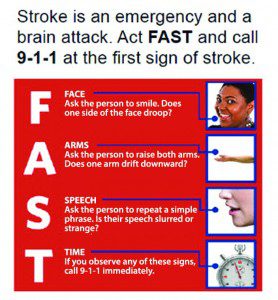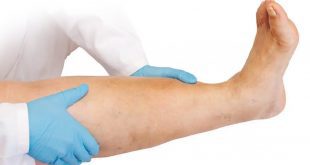 Blood pressure measures the force your blood exerts on blood vessel walls as it travels through your body. Your blood pressure reading has two numbers (for instance, 120/80). The first number is the systolic blood pressure, and measures the force your blood exerts on blood vessel walls as your heart pumps. The second number is the diastolic blood pressure, and measures the force your blood exerts on blood vessel walls when your heart is at rest between beats.
Blood pressure measures the force your blood exerts on blood vessel walls as it travels through your body. Your blood pressure reading has two numbers (for instance, 120/80). The first number is the systolic blood pressure, and measures the force your blood exerts on blood vessel walls as your heart pumps. The second number is the diastolic blood pressure, and measures the force your blood exerts on blood vessel walls when your heart is at rest between beats.What is high blood pressure?
For people over age 18, ideal blood pressure is considered 120/80 or lower. Blood pressure varies with exercise or stress. A blood pressure reading that is often higher than 120/80 is considered pre-hypertension. High blood pressure or Stage One hypertension is measured at 140/90 or higher. If you have had a previous heart attack, stroke, are diabetic, have kidney disease, high cholesterol, or are overweight, speak with your physician about controlling and lowering your blood pressure. Keeping your blood pressure below 140/90 may reduce your risk of any complications.
As many as 50 million Americans age six and older have high blood pressure. Of the one in every four adults with high blood pressure, 31.6 percent do not know that they have it.
How is high blood pressure related to stroke?
High blood pressure is the most common risk factor for stroke. Doctors call high blood pressure “the silent killer” because you can have high blood pressure and never have any symptoms. If it is not treated, high blood pressure can lead to stroke, heart attack or kidney failure.
High blood pressure puts stress on blood vessel walls, causing them to thicken and deteriorate, which can lead to a stroke. It can also speed up several common forms of heart disease.
When blood vessel walls thicken, cholesterol or other fat-like substances may break off of artery walls and block a brain artery. In other cases, the increased stress can weaken blood vessel walls, leading to a vessel breakage and a brain hemorrhage.
What causes high blood pressure?
In most cases, it’s impossible to pinpoint
an exact cause of high blood pressure. There are, however, some factors that have been linked to high blood pressure, such as: Family history of high blood pressure:
• Age – the rate of high blood pressure rises in men after age 35 and in women after age 45
• Gender – Men are more likely to have high blood pressure than women
• Race – Approximately 33 percent of African- Americans have high blood pressure, compared to 25 percent of Caucasians
• Other factors linked with high blood pressure include excess weight, high alcohol consumption, diabetes, lack of exercise, and a high-salt diet.
How can high blood pressure be treated?
In most people, high blood pressure can be controlled through diet, exercise, medication, or a combination of all three.
A diet that is low in salt and rich in vegetables, fruits, and low-fat dairy products may help lower your blood pressure. Recent studies have also shown that increasing potassium intake may help lower blood pressure.
A program of regular exercise – appropriate to your age and fitness level, and approved by your health care provider – can lower blood pressure, and may aid in weight loss.
Finally, many medications are offered to treat high blood pressure. You and your health care provider may have to try several different drugs before you find the one that works best for you. This is common, so try not to be discouraged if it happens. Once you find a drug that works, be sure to take it as directed, even when you feel fine. If you have already had a stroke, lowering your blood pressure (even if you do not have high blood pressure), lowers the risk of recurrent stroke.
Speak with your health care provider about “customized” strategies and information about how to control your hypertension. The key to keeping your blood pressure within the normal range is your commitment to be an active participant with your health care provider in your own care.
For more information: The National Heart, Lung, and Blood Institute (NHLBI) of the National Institutes of Health http://www.nhlbi.nih.gov.
For more information about ways to reduce your risk of stroke, visit National Stroke Association at www.stroke.org.
Source: stroke.org
 Central Florida Health and Wellness Magazine Health and Wellness Articles of the Villages
Central Florida Health and Wellness Magazine Health and Wellness Articles of the Villages



